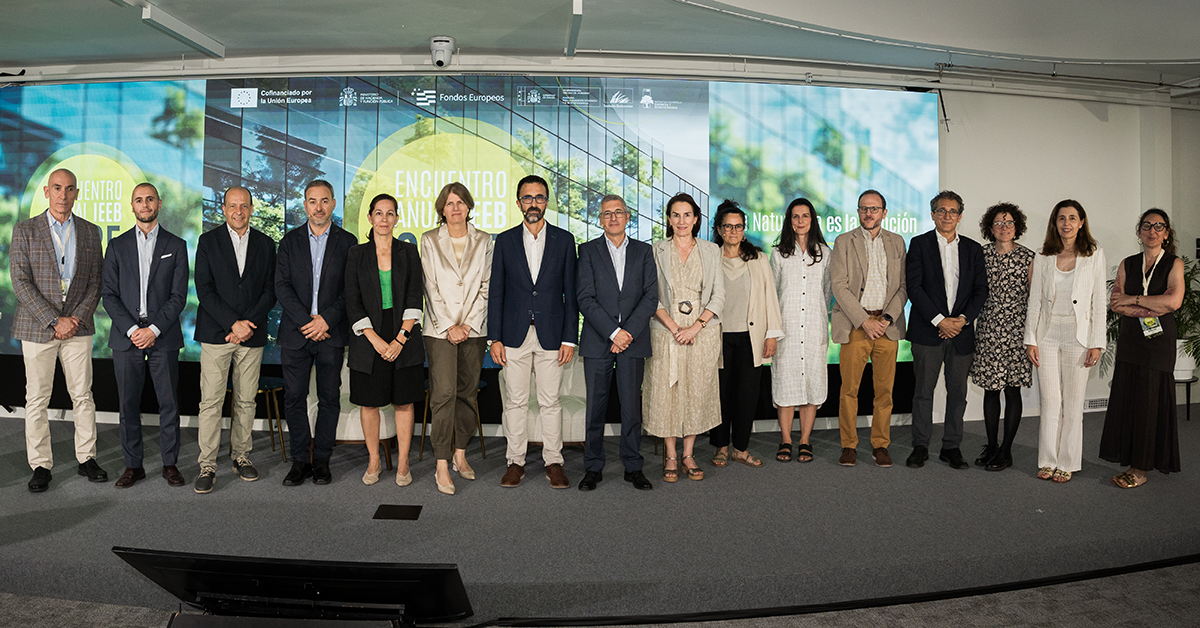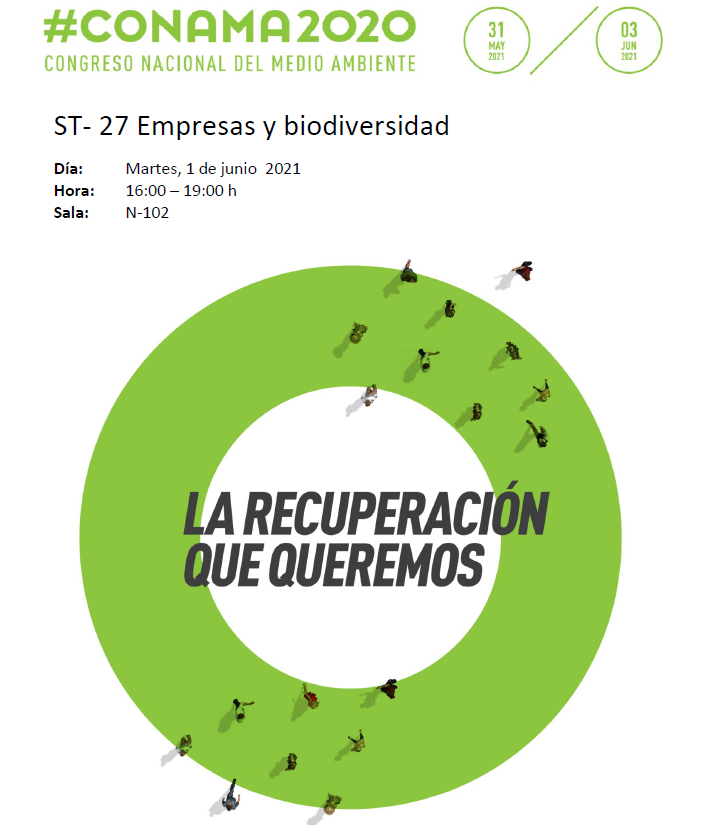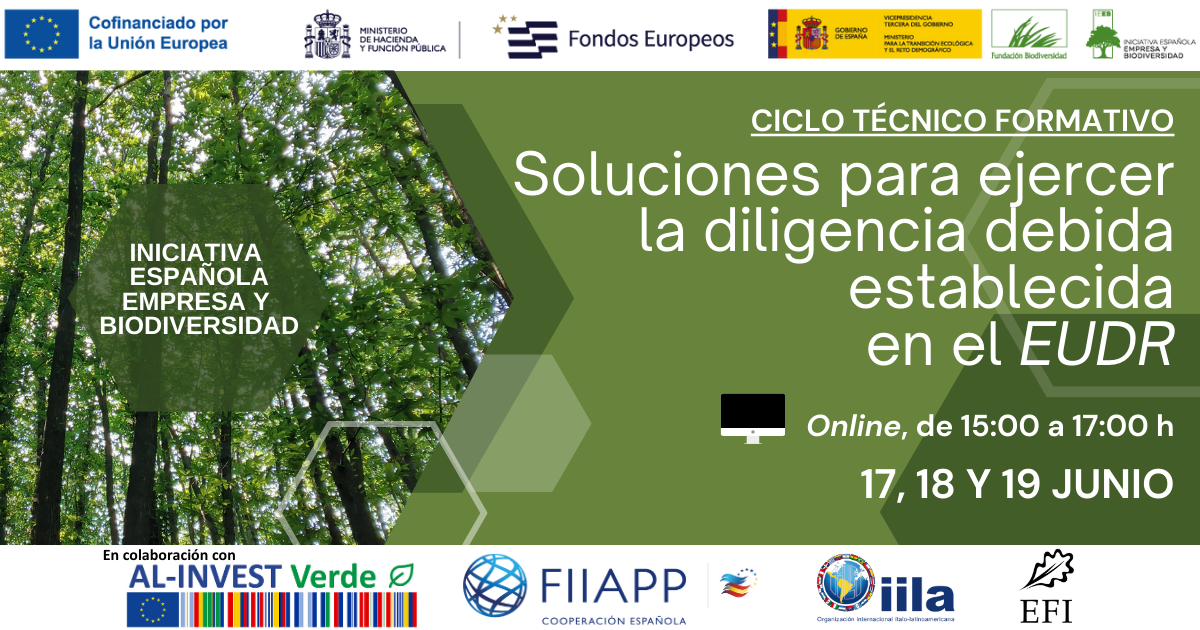The IEEB addresses at its annual meeting how nature is the solution to deeply interconnected challenges
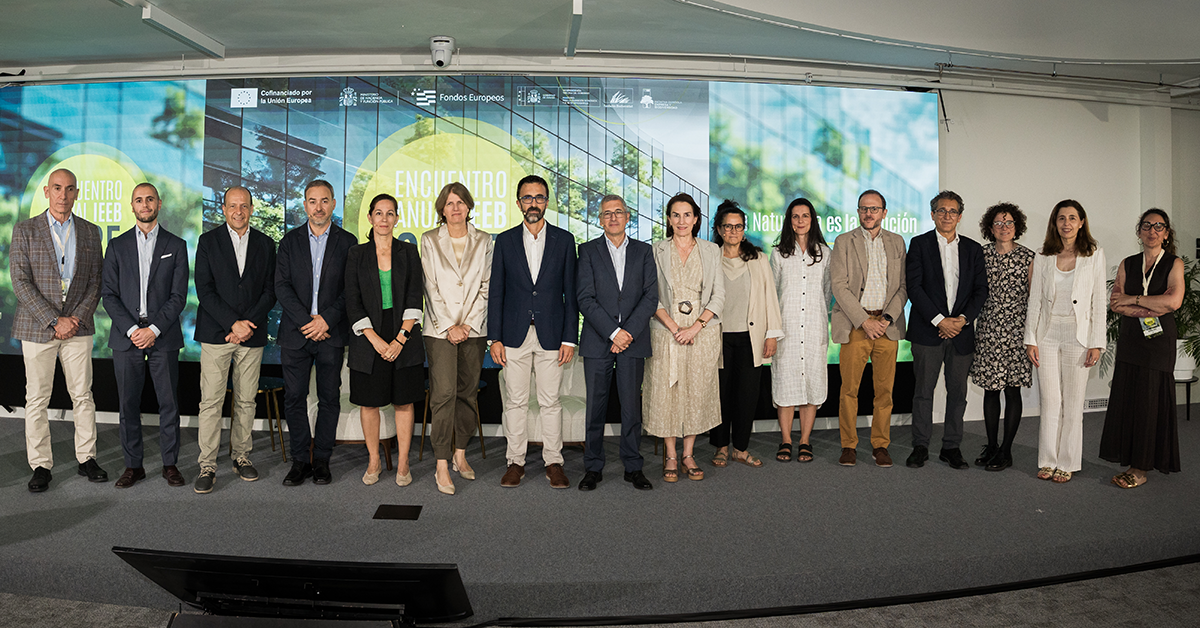
The Spanish Business and Biodiversity Initiative (IEEB) held its 2025 Annual Meeting on June 3, bringing together more than 80 entities, to address how nature can be an effective and profitable solution, not only to reverse the loss of biodiversity, but to face other challenges that interact and aggravate each other, such as climate change. food security or water scarcity.
The event was attended by the Secretary of State for the Environment, Hugo Morán, who opened the conference by highlighting how “natural capital sustains the creation of economic capital” and guarantees the viability of business initiatives. He also highlighted the role played by the Spanish Business and Biodiversity Initiative (IEEB) to “generate spaces for reflection and collective understanding where answers can be found”, thanking the commitment and ability to attract other companies adhering to the IEEB.
For his part, Félix Romero, director of the Biodiversity Foundation of MITECO, pointed out the need to measure more and better to “communicate to society that there is another way of doing economy” and seek the connection of nature with economic, social and cultural benefits. In this sense, “demonstrating that Spain is growing in natural capital because there is a business commitment can be very positive,” he added. Convinced that “the most solid knowledge will come from the hand of alliances”, he highlighted the capacity of the Biodiversity Foundation to generate spaces for dialogue and continue to identify new ideas to address.
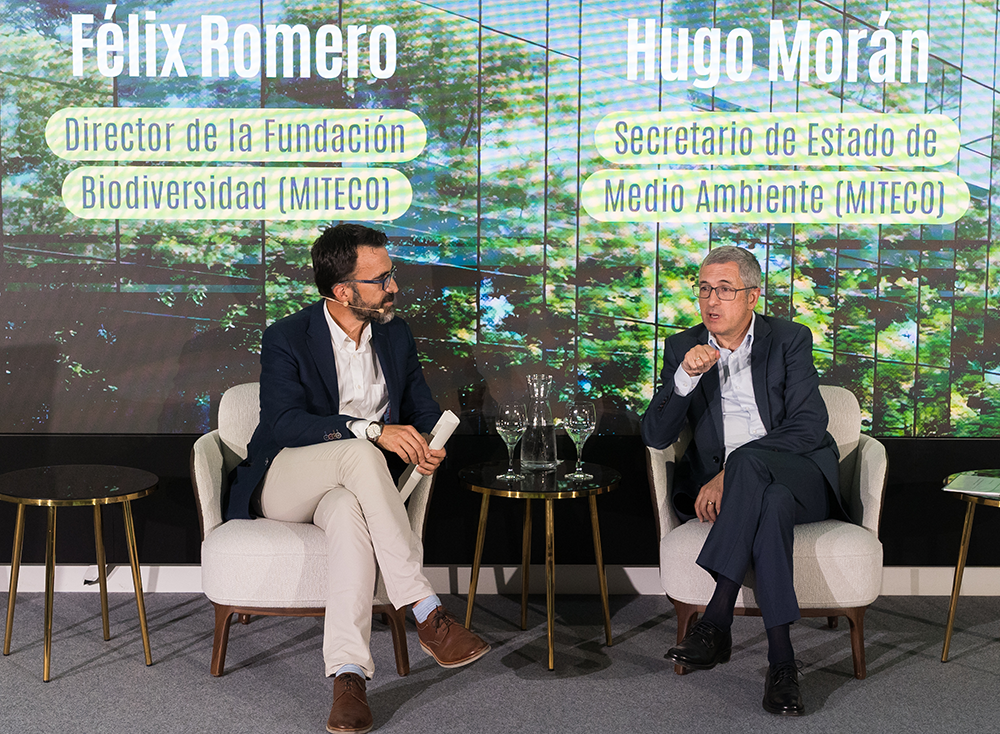
The scientific community recognizes the value of nature in the Nexus Report prepared by the Intergovernmental Science-Policy Platform on Biodiversity and Ecosystem Services (IPBES). From the hand of James Vause, lead author and coordinator of this report, we were able to learn about the more than 70 nature-based solutions that would make it possible to comprehensively address the links between biodiversity loss, water scarcity, food security, health risks and climate change.
The meeting also featured a table of inspiring experiences where Danone, Ecoalf, Iberostar and Nestlé highlighted the degree of dependence that their sector has on nature and how they manage their relationship with critical natural assets for their bottom line such as water, soil fertility or biodiversity as a tourist attraction.
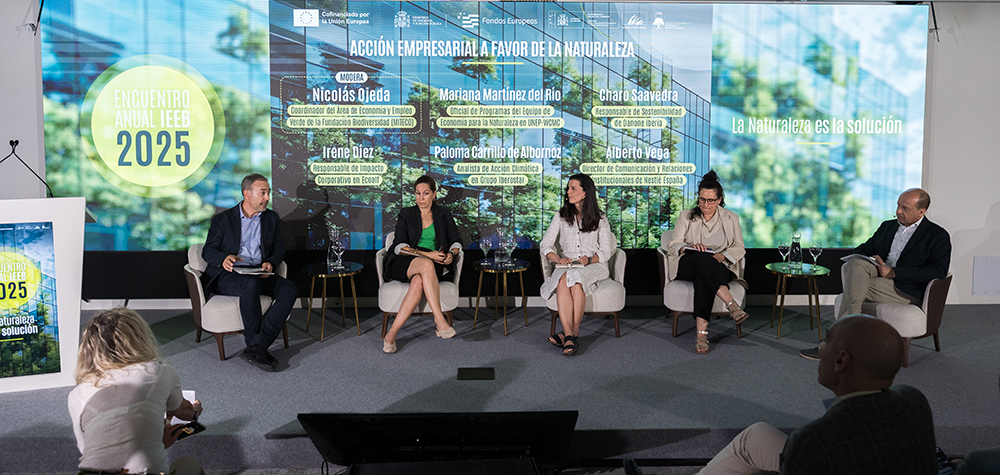
To help companies and financial institutions understand why nature is important, the United Nations Environment Programme’s World Conservation Monitoring Centre (UNEP-WCMC) presented a preview of the tool they are developing. Developed within the framework of the EU Horizon SUSTAIN project in which the Biodiversity Foundation participates, it will be available by the end of the year and will offer guidance on what steps to take, what actions to take and what resources are available to integrate nature into private sector decision-making.
Finally, representatives of the public administration, the financial environment, business and environmental law, together with the strategic partners of the IEEB, discussed the challenges that remain to be addressed to accelerate the incorporation of nature into corporate strategies.
As in previous editions, challenges such as the application and compliance of the regulation, the availability of data to measure the effectiveness of both public policies and corporate actions, the lack of training in the workplace or the lack of sensitivity and knowledge of consumers about the importance of nature. New challenges emerged, such as the urgency of going beyond mitigation, seeking positive contributions to nature or the need to make economic sense of investment and financing.
Mª Jesús Rodríguez de Sancho, general director of Biodiversity, Forests and Desertification at MITECO, appealed to the need for “dialogue with the business fabric to seek instruments that facilitate compliance with regulations”. He highlighted the effort made to integrate, expand and improve access to information on the state of biodiversity with the creation of the Integrated Information System on Biodiversity and Natural Heritage, also inviting the business sector to feed this data repository.
From the point of view of the capital market, Helena Viñes, president of the European Platform for Sustainable Finance, pointed out the important role played by the European taxonomy as an instrument that, in a context of prioritization such as the current one, focuses on positive actions for nature by interconnecting challenges through the criterion “without significant harm”. Regarding the current regulation, regardless of whether or not it is sufficient, he pointed out that at the European level and in general “the real problem is that it is not complied with”.
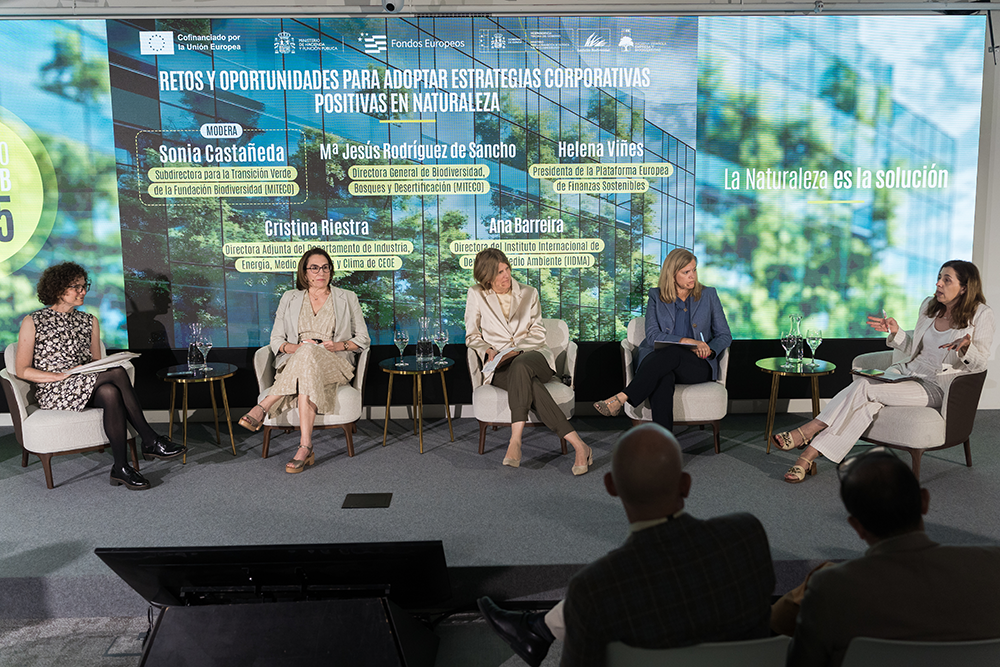
Making SMEs and local companies based in the territory understand “how to turn biodiversity into an axis of competitiveness, resilience and a shared future” was one of the main measures proposed by Cristina Riestra, deputy director of the Department of Industry, Energy, Environment and Climate at CEOE. For her part, Ana Barreira, director of IIDMA, recommended allocating resources to facilitate compliance with the regulations by companies.
IEEB’s strategic partners added the need to build economic activity from natural capital, advance in the monetization of nature’s benefits, design frameworks for measuring positive impacts, or launch awareness and training campaigns that can attract the unconvinced and educate the consumer.
You can watch the recording of the IEEB 2025 Annual Meeting by clicking here.
